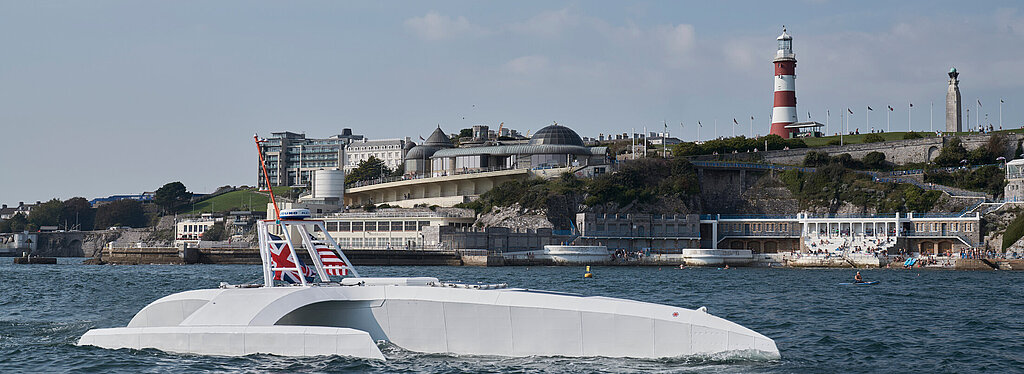The coronavirus pandemic has obviously become a turbo booster for the digital transition in shipping – a view supported by a recent shipowner survey conducted by the consultancy Pricewaterhouse Coopers (PwC): 91% of respondents expect the pandemic to boost this trend. The surge of digitalisation efforts is generally perceived as a conscious reaction to the crisis.
A company that has taken the lead in this respect is the world's biggest liner operator, Maersk. On their 275 container vessels, the Danes have installed 2800 sensors which transmit 30 terabytes of data to shore every month. Analysing and interpreting this data allows Maersk to optimise its fleet operations and save up to 20 million dollars in fuel costs per year.
All off board
But the purpose of all those radar systems, sensors and cameras is not limited to improving ship performance; in the medium term, they might help vessels navigate the world's oceans independently. Not long ago, unmanned ships may have seemed like a futuristic vision at best, but artificial intelligence is turning that vision into a reality. As early as 2017 the maritime division of Rolls-Royce (meanwhile acquired by Kongsberg) successfully tested the world's first remote-controlled commercial tugboat in Copenhagen harbour. Soon the fully electric “Yara Birkeland” will operate autonomously along the Norwegian coast. Vard shipyard has delivered the 120 TEU container shuttle which is currently waiting to be put to work.
But when it comes to ships travelling longer distances autonomously, the situation is much more complex. The project "Mayflower Autonomous Ship" (MAS) has made remarkable progress. The autonomous vessel is scheduled to set sail for a fully unmanned trip across the Atlantic Ocean next April. MAS is equipped with sophisticated software that processes the data from 30 sensors and six cameras installed on board. The vessel will receive commands from the land-based control centre. "What makes this project special is that it is a seagoing vessel which can go a long distance. Most previous unmanned vessels have only been able to go short distances, so this is a big change," said Fredrik Soreide, ProMare project director. ProMare is one of the partners in this project which is being spearheaded by the IT company IBM.
Artificial intelligence will be the featured topic of several lectures at the Maritime Future Summit. For further information on the conference programme go here. The specialist conference will take place on 2 February during SMM DIGITAL and feature high-profile speakers.
Participation is free of charge, and no registration is required.
Programme Maritime Future Summit
Credit:
Mayflower Autonomous Ship Launches
Credit: Tom Barnes for IBM


